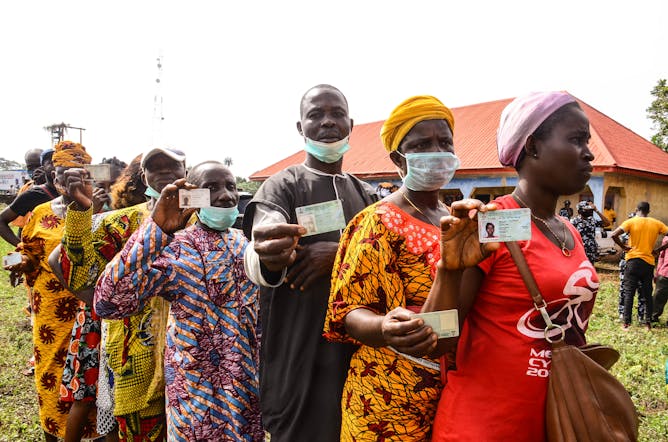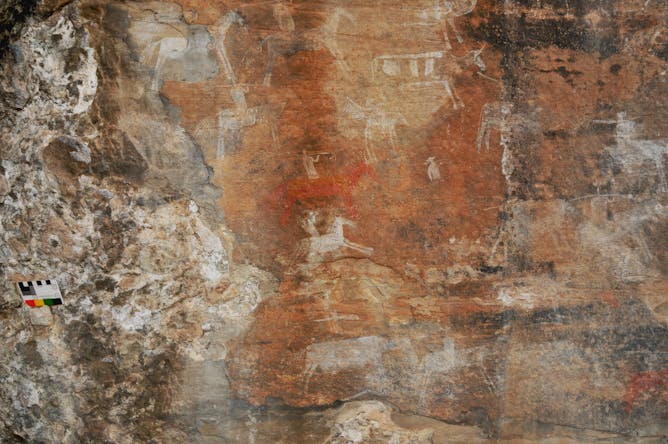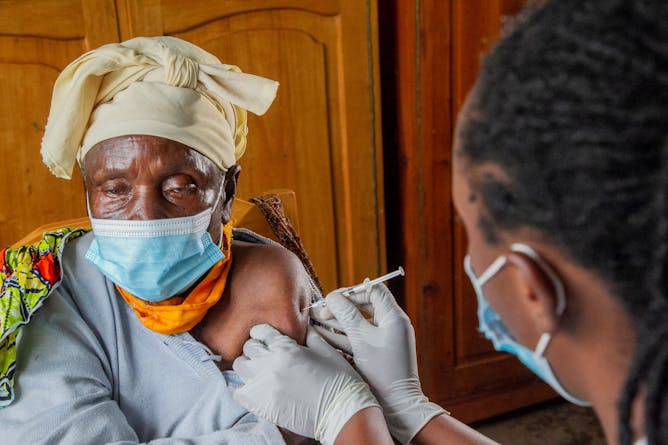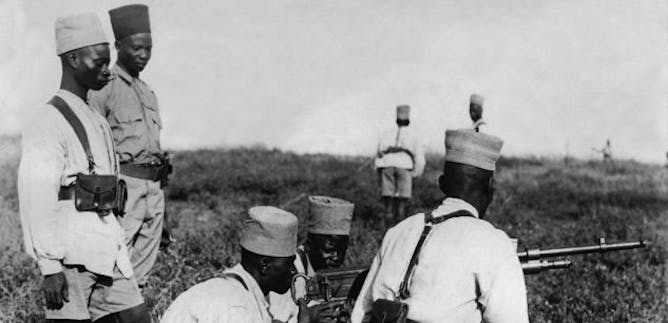|
For 93.5 million registered Nigerian voters, 25 February is a day they wield the power to determine who leads Africa’s most populous nation for the next four years. Eighteen presidential candidates are vying for office. But the candidates are not the only ones who will be put to the test. Also on trial is the Independent National Electoral Commission – Nigeria’s electoral umpire – charged with the responsibility of conducting Africa’s biggest election, at 176,606 polling stations. Here are five essential reads about the election, written by our academic experts.
With thousands of candidates vying for Nigeria’s National Assembly and 18 political parties contesting for the presidential elections, there’s a lot for Nigeria’s voters to consider. Fortunately, a new tool has been developed to help – it allows voters to identify candidates based on their location address. Hakeem Onapajo argues this will help young Nigerians navigate their way through the electoral maze.
Fed up with scheduled power cuts, many South Africans are considering alternatives that will help them go off-grid. In the country’s economic hub, Gauteng province, regular water supply problems also mean residents and businesses are thinking of wells, boreholes and water tanks. This all costs money and poorer households are being left behind. Christina Culwick and Samkelisiwe Khanyile point to the implications for social justice and equitable access.
|

|
Adejuwon Soyinka
Regional Editor West Africa
|
|

Adejuwon Soyinka, The Conversation
Nigerians head to the polls for presidential elections on 25 February. Here are five things you should know about the elections.
|
|
|

Hakeem Onapajo, Nile University of Nigeria
A digital tool to help citizens know the candidates better has been developed for Nigeria’s 2023 elections.
|
|
|

Christina Culwick, Gauteng City-Region Observatory; Samkelisiwe Khanyile, Gauteng City-Region Observatory
Very little attention has been paid to the justice implications of electricity distribution.
|
|
|

Sam Challis, University of the Witwatersrand; Brent Sinclair-Thomson, University of the Witwatersrand
Changes in southern African rock art reflect the mixing of groups of people after they came into contact with each other.
|
|
|

Charles Shey Wiysonge, South African Medical Research Council
Rwanda has built a healthcare delivery system on primary healthcare with individuals and communities at the centre.
|
TC Afrique
|

Anthony Guyon, Université Paul Valéry – Montpellier III
Au lendemain de la Première Guerre Mondiale, alors que l’armée française a subi des pertes terribles, les soldats originaires des colonies prennent une place importante au sein des troupes coloniales.
|
From our international editions
|
-
Dan Plesch, SOAS, University of London
Russia is walking away from the last remaining treaty designed to limit the proliferation of nuclear weapons.
-
Jane Draycott, University of Glasgow
There would have been plenty of time during the long, dark, Northern nights for ancient Roman shoemakers to indulge in side hustles.
-
Esther Kettel, Nottingham Trent University
Vultures help protect us from disease and in many cultures they are a symbol of strength and wisdom.
-
Brendan Canavan, University of Nottingham
Companies selling e-cigarettes are marketing their products to teenagers and young adults.
|
|
| |
|
|
23 February 2023
•
Johannesburg
|

|
23 February 2023
•
Stellenbosch
|

|
3 March 2023
•
Johannesburg
|

|
3 March 2023
•
Stellenbosch
|

|
|
|
|
| |
| |
| |
Would you like to republish any of these articles?
|
|
It’s free to republish, here are the guidelines.
Contact us on africa-republish@theconversation.com in case you need assistance.
|
| |
| |
| |
| |
|
|